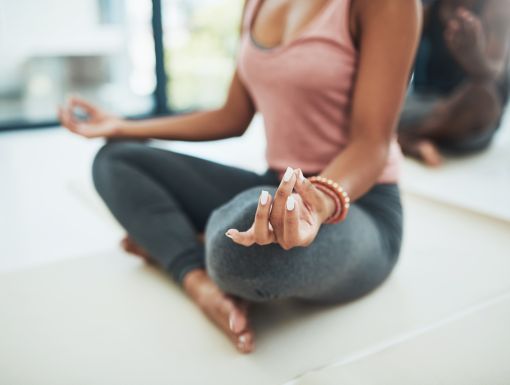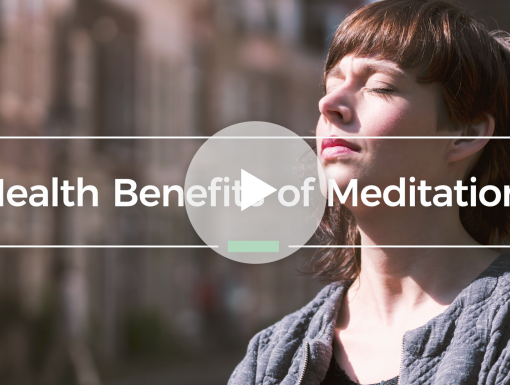
Can Meditation Help My Mental Health?
What do you think of when you hear the term “meditation?” Do you imagine a person sitting cross-legged on the floor while chanting? Guess what? It’s more than you have seen on television and it is not a new-aged concept. People have been meditating for thousands of years. Meditation can help with common mental health struggles including stress, anxiety and depression, which we can all use! Managing mental health issues can also benefit your physical health. With its increasing popularity, you may be wondering if it is worth giving meditation a try.
Meditation can improve awareness, clarity and give you a sense of calm. It can also improve your focus, problem-solving skills and make you less irritable and reactive to negative situations.
Just a few minutes set aside every day to allow yourself a chance to breathe, recharge and let go can improve overall mental health. Anxiety and chronic stress are known to be linked to many physical health problems including heart issues, high blood pressure, cholesterol levels and poor sleep. Anxiety and stress also increase the potential for serious diseases.
Have you been feeling snappy lately? Meditation can help improve your relationships with others and with yourself. When you begin meditating, you may find that you are less irritable, less likely to take offense easily, able to problem solve better and may become less reactionary when exposed to negative feedback or negative situations. You may also find that you engage in less negative self-talk after meditating.
Believe it or not, this practice is simple. Here are a few meditation tips for beginners.
- Find a quiet, peaceful place where you won’t be distracted (put your phone on do-not-disturb). This may mean sitting outside, in your bedroom or even in the closet! Background noise is OK, but you shouldn’t be distracted by other people or electronic devices.
- Determine how long you’d like to meditate (10 minutes is a good place to start).
- Make it a habit. Pick a time and a place to meditate so that you can build discipline and a routine. Morning meditation is popular, but you could also try it in the afternoon or evening.
- Get comfortable. For you, this may mean removing your shoes, changing into more comfortable clothing or bring a glass of water with you to sip before and after.
- Choose the right position. You do not have to sit cross-legged on a floor to meditate. In fact, as a beginner, you may want to sit in a chair or on a cushion. You should be sitting upright with your back straight, neck relaxed and your chin tucked in slightly. Your hands should rest loosely on your lap or knees. If sitting isn’t ideal for you, lying down is also an option! Whatever works for you is what is most important.
- You may find that music helps. You can find meditation music on YouTube or on your favorite music streaming service. If you use a meditation app, music is often provided.
- Figure out your motivation. Why do you want to meditate? Being clear about why you want to meditate can help you get more out of your sessions.
- Take it one day at a time! Meditation is meant to be a lifetime experience. Try not to judge yourself if you become distracted during a session.
- If you’ve never meditated before or you’d like some extra help and motivation, you can try some meditation apps like Headspace, Calm and Insight Timer.
Meditation is a great way to help manage your mental health in addition to working with a licensed mental health professional. If you are dealing with issues that you feel have become overwhelming, dangerous or beyond your control you should speak with your care team.
Learn more about Courtney Gunn, Ph.D. and Psychiatry & Behavioral Health Services at Ochsner Health.



